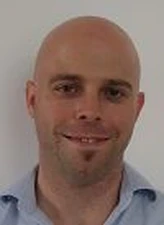Boris J.P. Kaus

GD Geodynamics
The 2011 Arne Richter Award for Outstanding Young Scientists is awarded to Boris J.P. Kaus for his contribution to the understanding of geodynamical processes over a wide range of scales from crystal mushes to the lithosphere and mantle.
Boris Kaus is a world-leading, young geodynamicist who attacks first order problems and his work has given us fundamental insights.
Boris has made a significant contribution to the understanding of geodynamical processes over a wide range of scales. For example, his work on the formation of lithospheric shear zones explains the conditions under which they form and the factors that control their angle. His various papers on lithospheric and crustal deformation clearly delineate (i) the influence that elasticity has on the stress distribution and topography during lithospheric delamination, (ii) the importance of surface erosion and a free surface boundary condition and in contrast the irrelevance of elasticity and plasticity on continent-ocean collision that formed Taiwan, (iii) the strong effect of rheology on stress distribution in a subduction zone, which offers an explanation for why Taiwan simultaneously has a compressive stress state in the upper crust but an extensional stress state at depth, due to a weak lower crustal channel and (iv) that when deformation is localised, conventional stress envelopes may not apply. His recent work on the rheology of partially molten aggregates helps to explain laboratory findings that were previously mysterious.
What is impressive about Boris Kaus’ approach is the thorough and systematic nature of his studies and the way that he combines state of the art numerical simulation (often advancing the state of the art) using complex visco-elasto-plastic rheologies with simplified mathematical analyses in order to really understand why and how things happen. He then applies this knowledge to understanding field observations.
In addition he makes important contributions to the community (including organising special sessions and a special PEPI volume, and has received two awards for reviewing), is an excellent mentor of PhD and MS students and has received a prestigious European Research Council Starting Grant.
